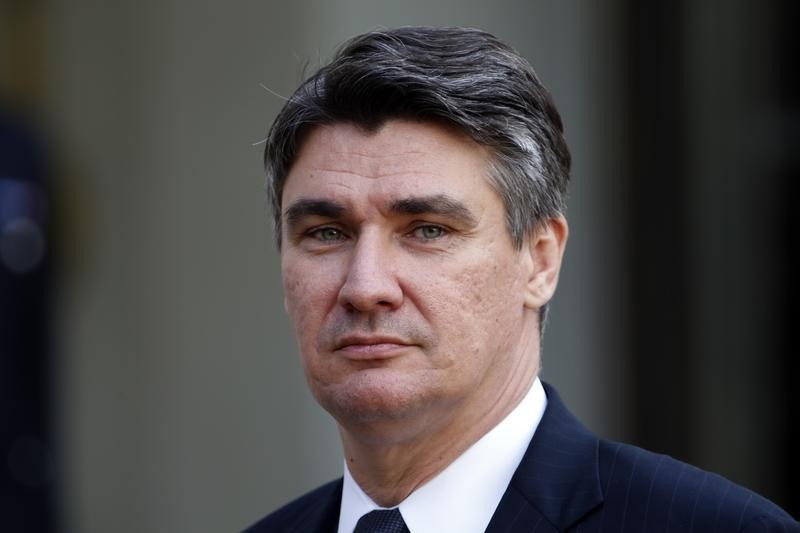ZAGREB (Reuters) - Croatia's new president, Kolinda Grabar-Kitarovic, urged Prime Minister Zoran Milanovic to resign on Monday, saying he had failed to revive the battered economy after three years in office.
Grabar-Kitarovic won the presidential election in January as a candidate for the conservative opposition HDZ party, pledging to prod the Social Democrat-led government into doing more for the economy, which has been in recession since 2009.
With a parliamentary election not due until late 2015 or early 2016, a year of tense cohabitation between the president and the increasingly unpopular Social Democrats looks likely for the country which joined the European Union in 2013.
"After a thorough analysis and consultation with economic experts, the President has concluded that the most concrete proposal for ending Croatia's crisis is the prime minister's resignation," the president's office said in a statement.
Should Milanovic ignore the call to step down, he should present his own reform proposals, "as this is the government's and not the president's constitutional obligation," the statement said.
The presidency is largely a ceremonial role but the president has some say in foreign and defence policy and can request special cabinet sessions in other areas, but cannot veto laws.
Josip Leko, the speaker in parliament and a senior official in Milanovic's SDP party, told Croatia's state radio: "This (president's proposal) seems to be more about who will nail who, instead of how we can solve the problem .... Croatia needs dialogue, we need to cool the tensions."
Unemployment in Croatia is running at 20 percent and the economy is not expected to grow in 2015 as the government struggles to rein in spending and cut the budget deficit.
Grabar-Kitarovic requested last week that the cabinet hold a special session to discuss the economy, which she would attend. Milanovic, in response, said the president should prepare concrete proposals for the session, plans for their implementation and an assessment of their financial impact.

Grabar-Kitarovic has urged the government to cut red tape and make taxes less onerous for investors in the former Yugoslav republic of 4.4 million people. Public debt is expected to surpass 80 percent of gross domestic product this year.